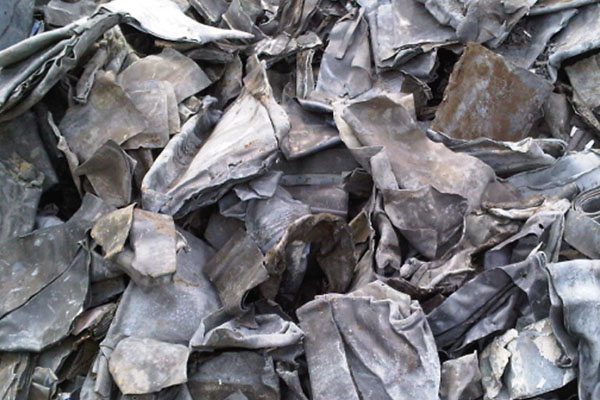later post | index | earlier post
Can lead be recycled?
Friday, 30 November 2018

Not only is lead a recyclable metal, it possesses some of the highest recycling rates of all materials commonly used today. In fact, more lead is now produced through recycling than mining.
With innate properties such as softness and malleability making it highly valuable and usable in a wide variety of applications, lead lends itself perfectly to reuse. Recycled lead is no different from newly-sourced metal in terms of quality and can often be reused without limits. Additionally, lead-based products are easily identified, allowing for a relatively simple collection and recycling process.
As a result, rising demand for second-hand lead has supported the growth of a healthy recycling industry in the UK over recent years.
Can batteries be recycled?
Approximately 85% of the lead used today is found in batteries (often lead-acid batteries), all of which can be recovered and recycled for use in new products.
The disposal of batteries is now a highly regulated area, with tight controls stipulating their separation from the household waste stream and landfill sites. This is because batteries, when left to decay or burned with other rubbish, can leak harmful chemicals (such as mercury, cadmium and lead) into the local environment.
Why recycle batteries?
As well as reducing pollution which has the potential to harm people, animals and the wider environment, there are numerous commercial benefits to recycling batteries.
Most importantly: lead is a limited resource, a naturally-occurring material which can only be mined at substantial cost – financially and environmentally. Burying or burning such valuable resources is extremely uneconomical, to say the least.
With every battery holding the potential to be reused in a new product, it is now estimated that approximately 74% of all lead used in the U.S. and Europe is produced through recycling processes.
UK legislation also requires manufacturers and distributors to ensure batteries are collected and reused wherever possible, with failure to comply potentially resulting in financial penalties.
Where to sell and recycle your scrap lead
With legal obligations surrounding the recycling of waste electrical and electronic equipment (WEEE), used batteries are often collected in a range of locations. These include collection bins in shops and supermarkets, town halls, libraries and/or schools, as well as certain Household Waste Recycling Centres.
In all other cases, scrap metal (such as lead pipes) and recyclable batteries should be taken to an Approved Authorised Treatment Facility (AATF) and/or Approved Battery Treatment Operator (ABTO). Only these organisations are licensed to recover, treat and recycle waste electronics. Similarly, specialist scrap metal dealers must prove their compliance and competence with EU Waste Regulations by obtaining a Certificate of Conformity, in addition to their license issued by the local government. Any company trading without these certifications could, if discovered, face fines of up to £5,000.
The law also states that cash payments for scrap metal are illegal – any transfer of scrap metal should be paid of through cheque or electronic bank transfer, exclusively.
Your nearest collection and deposit locations can typically be found on your local council website or listed at recyclenow.com.
As a fully-licensed AATF, ASM Metal Recycling specialises in the collection and recycling of lead.
Learn more about recycling your scrap lead with ASM
Scrap lead prices
The price of scrap metal, including lead, can fluctuate day by day, sometimes shifting significantly depending on a range of factors. These can include locality and local demand from manufacturers, as well as international trade. The price you receive for scrap lead will also vary depending on the quality of the metal being traded. In any case, scrap metal is typically priced per tonne or per kilogram.
At ASM Metal Recycling, we ensure our customers get a great deal for their scrap metal by using the latest prices and up-to-date weighing technologies to ensure accuracy and fairness when trading.
Want to know more about bringing your scrap lead to ASM Metal Recycling? Contact us today to check out our range of recycling sites for further information.
later post | index | earlier post
Recent posts
- What is CHAS accreditation?
- How to Sort Metal for Scrap
- How to classify the different types of waste your business produces
- What is WEEE waste?
- Can iron be recycled in the UK?
- What has the most copper in it to scrap?
- How to better understand scrap metal pricing
- Is there a link between copper and brass prices?
- How to make money from cable scrap
- How many different types of copper are there?
- What can I sell to a scrap metal yard?
- Preparing for the collection of scrap metal
- How scrap metal prices have changed in the past decade
- The continued growth of scrap car recycling in the UK
- How To Dispose of Aerosol Cans in the UK